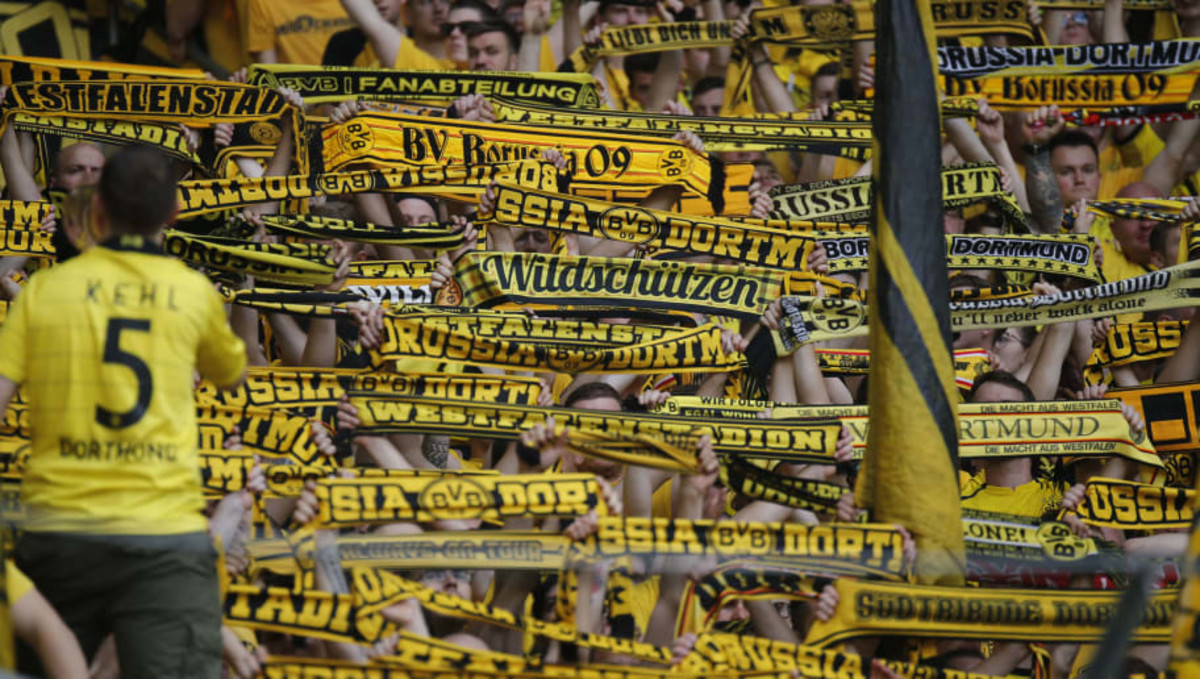Borussia Dortmund: A Journey From Europe's Worst Run Club to One of the Best

Borussia Dortmund. A modern-day super club. European football's darlings and every neutral's second favourite team.
But it wasn't always such plain sailing for Die Schwarzgelben, and as recently as 2004 the Bundesliga giants were actually on the brink of bankruptcy, even having to accept a helping hand from Bayern Munich in their time of need.
It was a story which started in 1997, shortly after Karl-Heinz Riedle and Lars Ricken's goals in the Champions League final against Juventus saw Borussia Dortmund crowned as the champions of Europe for the first time in their history.
Having won the Bundesliga title in two of the previous three years, Dortmund's players started looking for better contracts at the Westfalenstadion, while big money was also being spent on players during the decade leading up to Bayern Munich's bailout.
Heiko Herrlich arrived in 1995 for what was then a club-record deal, but Borussia Dortmund would splash even more in the wake of their Champions League success, signing the likes of Tomas Rosicky, Evanilson and Márcio Amoroso for a combined €55m - recouping just €10m when they eventually left the club.
It was during the 2003/04 campaign that Dortmund had been able to rack up a debt of roughly €200m.
Struggling to pay player salaries and other costs, Borussia Dortmund accepted a €2m loan from rivals Bayern Munich.
"It was a critical situation for Borussia Dortmund," Bayern Munich president Uli Hoeness recalled, via The Guardian. "When they couldn't even pay their salaries we thought we should help. I'm a big fan of tradition in sport and I think it was the right thing to do."
It wasn't the first time that Bayern Munich had stepped in to help a fellow German club either, as 1860 Munich and FC St. Pauli have found out first hand, but even their generous, interest-free loan offer wasn't enough to help Dortmund get out of the woods.
"First of all it was very honourable from Bayern Munich, helping other clubs in critical situations," Thomas Tress, Dortmund's chief financial offer, told SportsPro. "It was a critical situation for Borussia Dortmund.
"But it was not to save Borussia Dortmund because we are talking about €2m. If you realise the financial debt was roughly €200m, so €2m does not solve the whole problem, but it helped. It was an honourable step and what's more to say?"
Thanks to a meeting with investors on March 14, 2005, Borussia Dortmund's bailout plan bought them more time, with new club president Reinhard Rauball - alongside Hans-Joachim Watzke and Tress - helping to save the club.
It also saw a complete U-turn in the club's recruitment policy.
Borussia Dortmund stopped splashing the cash on marquee signings - a transfer strategy which is most closely with modern-day Premier League clubs - and instead focused their attention on investing in youth.
Nuri Şahin became the club's youngest ever player when he made his debut aged 16 in 2005, while in the last decade alone Borussia Dortmund have handed 23 teenagers their competitive first-team debut.
Dortmund are now reaping the rewards from their transfer policy too, as they've made a name for themselves in the market by signing young, talented players before selling them on to European football's wealthier clubs in big-money deals.
It's not just in the transfer market where Borussia Dortmund are thriving, however, as SportsPro confirm that the club have registered record non-transfer revenues.
Excluding player transfers, Dortmund announced a revenue of €369.3m - confirming a €50m year-on-year increase.
It's been a fantastic turnaround for a club who just 15 years ago were on the brink of collapse, and while Borussia Dortmund have been able to flex their financial muscles more freely in recent years, Die Schwarzgelben still haven't budged on their ultimately life-saving philosophy of investing in stars of tomorrow.








